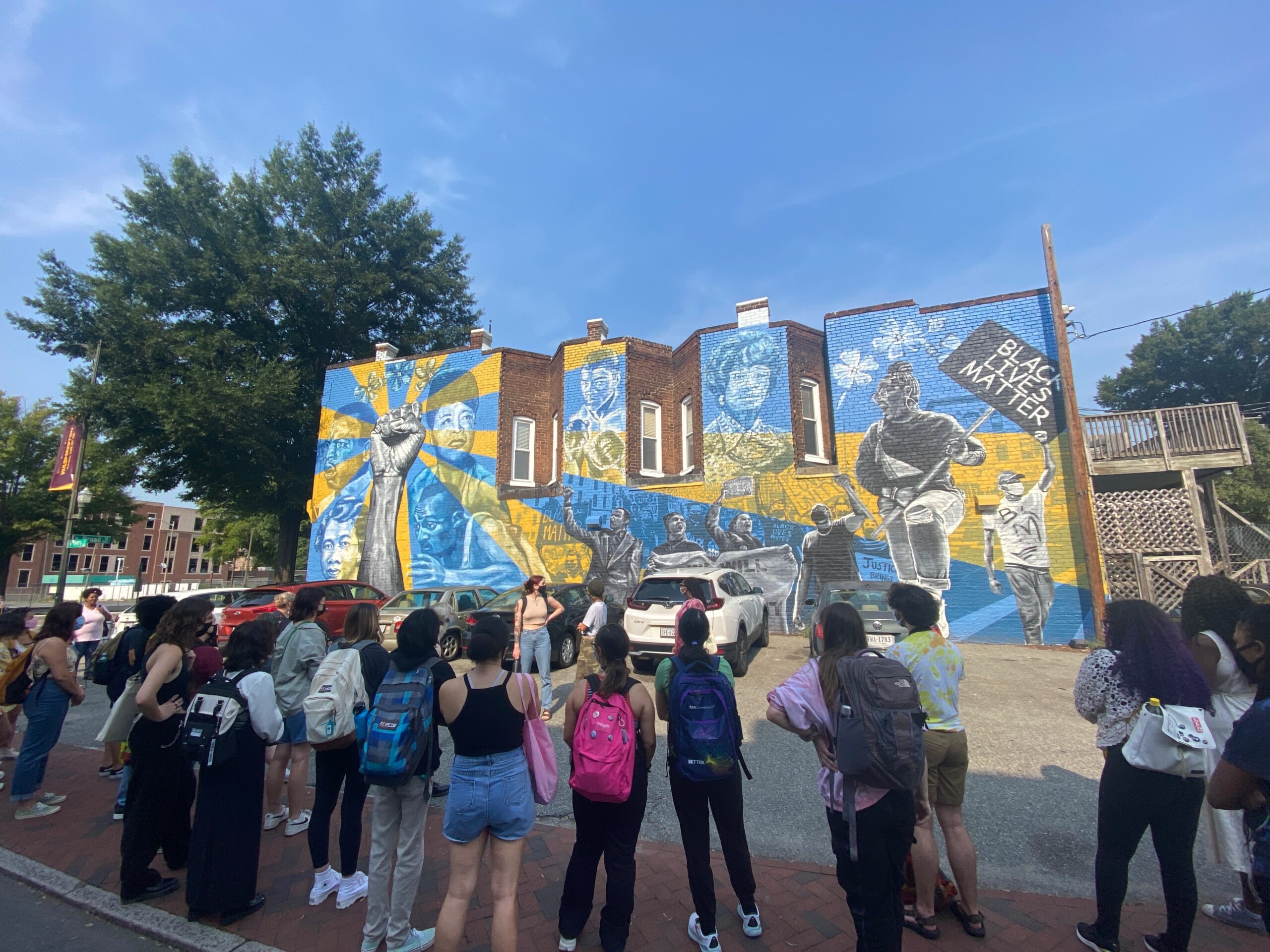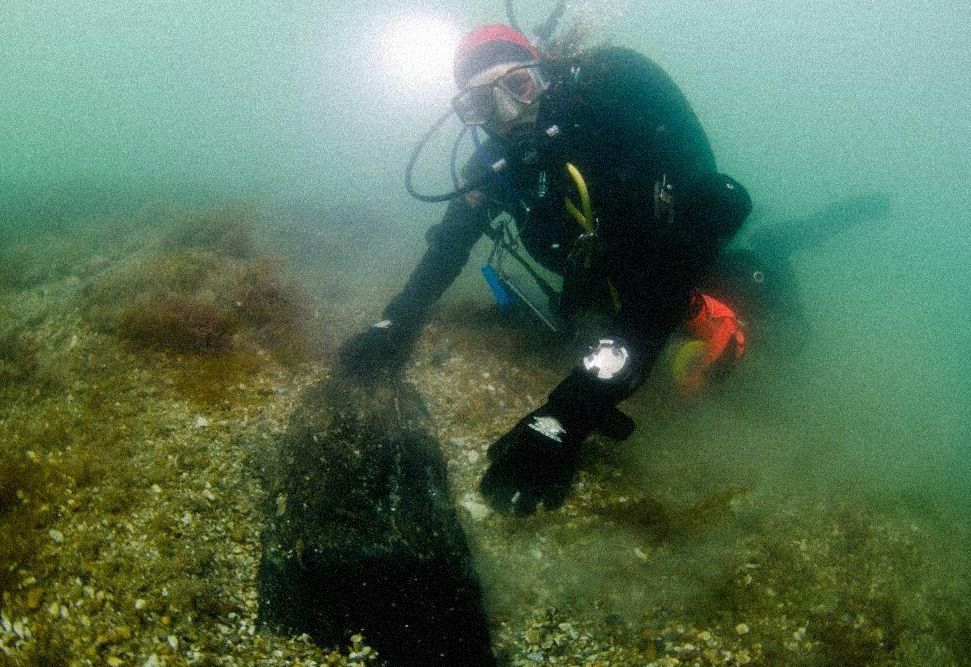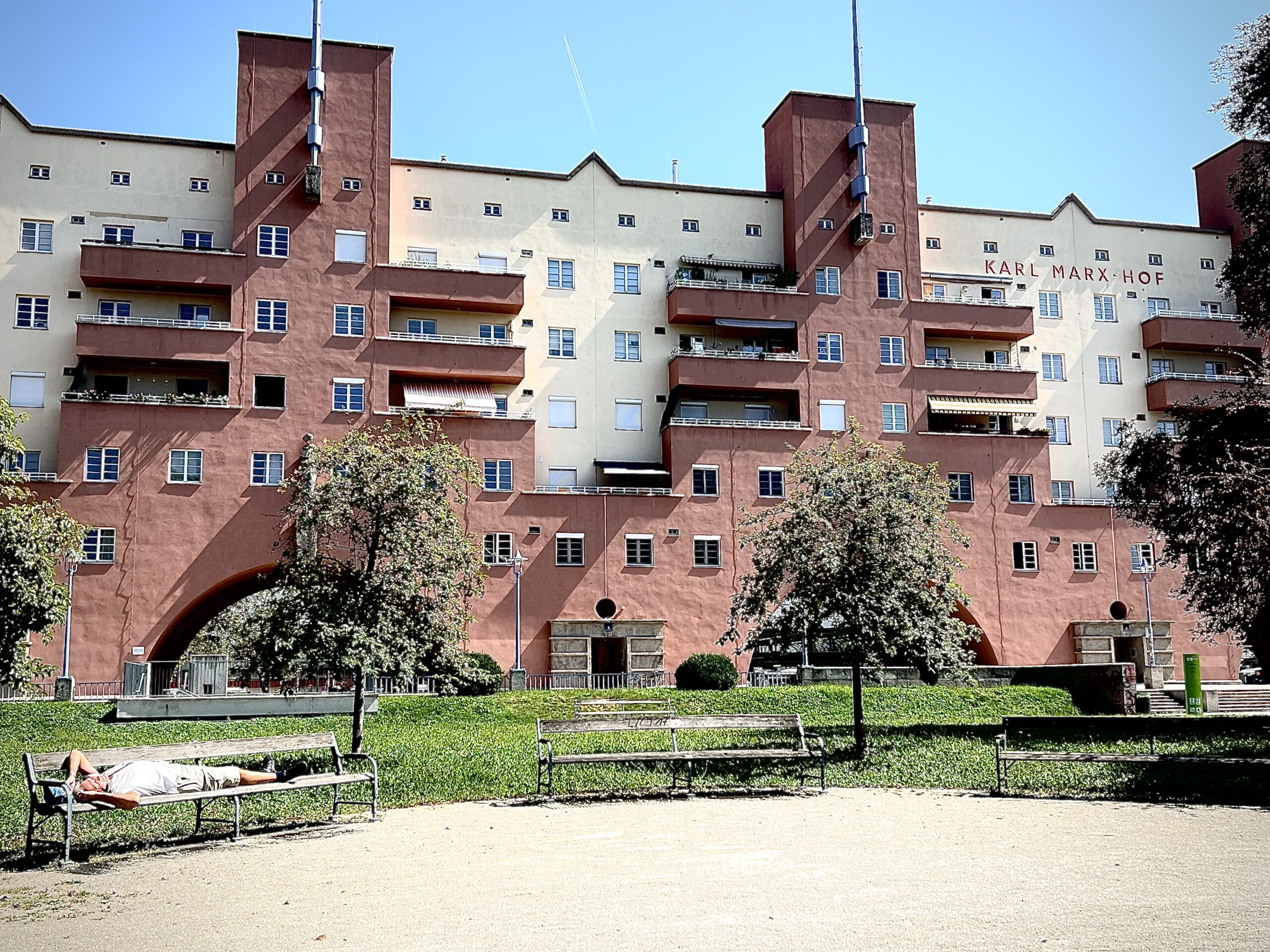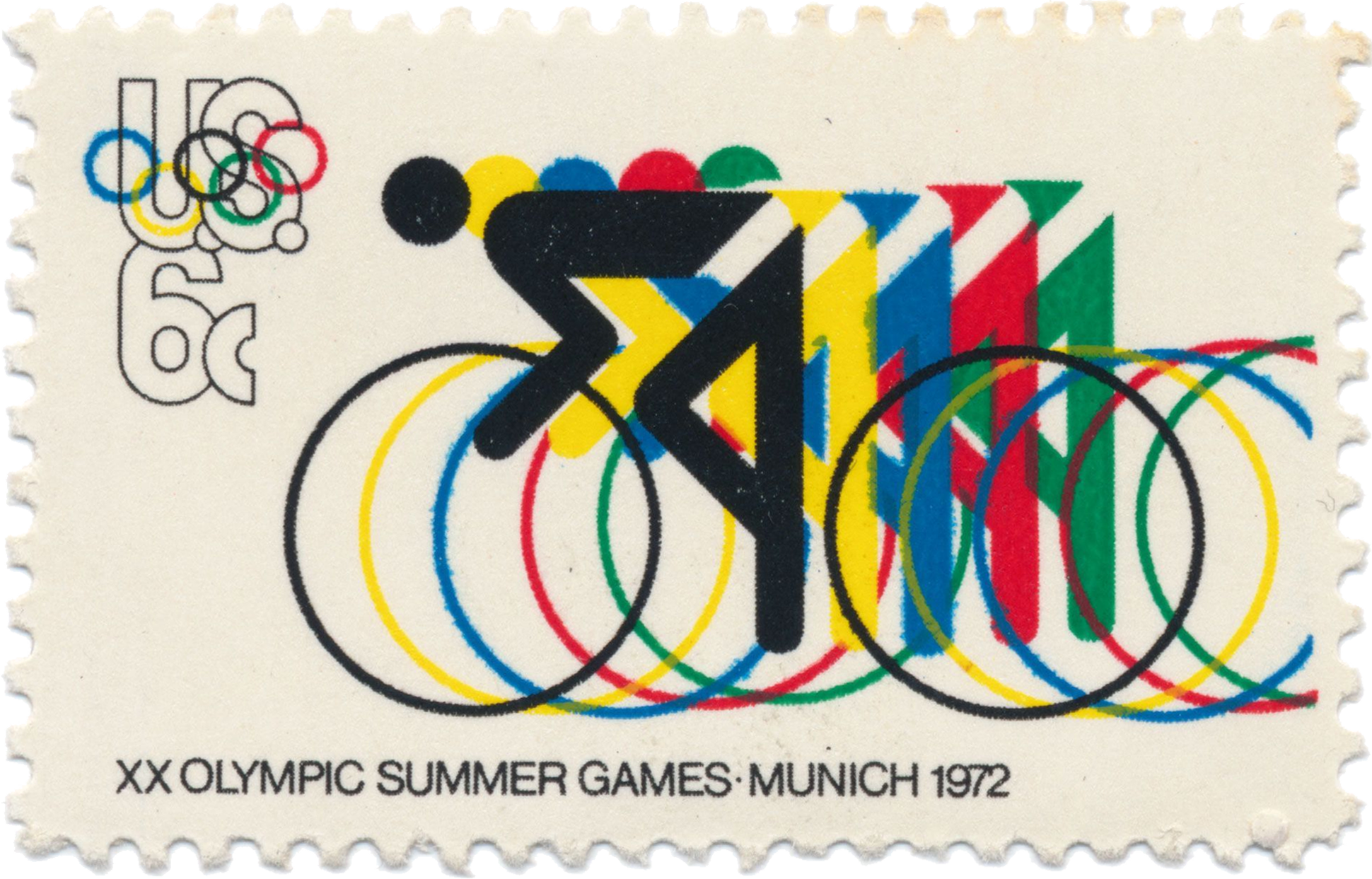
The Humanities Forum
2024-25 Schedule
APR
17
Public Art as Pedagogy
Caitlin Black Assistant Professor Department of Teaching and Learning in Art and Design
Prov-Wash Building ╱ Auditorium 143
20 Washington Place
Providence, RI 02903
April 17, 2025
1:00 – 2:30 PM
Registration required. Please register here:
Paper Abstract
This presentation will share research and reflections from a series of investigations around the perceived impact of Mending Walls, a collaborative, community-engaged art project aimed at advancing social justice by connecting people of different backgrounds in conversation to foster empathy, understanding, and healing. Highlighting the Richmond, Virginia-based project’s far-reaching ripple effects, this presentation will explore its potential to serve as a pedagogical model, as well as the significance of incorporating local artists and community-engaged art making practices in art + design education. Discussions will include considerations for how public spaces might serve as sites of inquiry in the development of art and design practice, as well as how recognition of complexities of art in the public realm can support the development of critical consciousness and dedication to life-long learning. It will also invite musings on using art as a tool in building beloved community through embracing radical empathy and the affirmation of our unique intersectional differences.
Presenter’s Bio
Caitlin M. Black is an Assistant Professor in Residence in the Department of Teaching + Learning in Art + Design. She has a variety of professional experiences in museum, community, and classroom settings. She worked at the Philadelphia Museum of Art and taught visual art in public schools for 8 years, working with students grades PreK-12 in New Jersey and California. Caitlin also taught undergraduate and graduate art education courses at Virginia Commonwealth University (VCU) in Richmond, Virginia and Rhode Island College (RIC) in Providence, Rhode Island.

Preservice art education students discuss a Mending Walls mural, Voices of Perseverance, by Richmond, VA artists Jason Ford & Ed Trask. Image credit Caitlin Black.
APR
01
Damien Hirst and the Unbelievable Hauntograph
Sara Rich Associate Professor Department of Theory and History of Art and Design
Prov-Wash Building ╱ Auditorium 143
20 Washington Place
Providence, RI 02903
April 1, 2025
1:00 – 2:30 PM
Registration required. Please register here:
Paper Abstract
Damian Hirst’s Treasures from the Wreck of the Unbelievable (2017) offers a rare, and perhaps unintended, opportunity to scrutinize maritime archaeology as epistemological pursuit and as colonial praxis. This presentation draws from my new publication in the Journal of Aesthetic Education and ongoing research to parse the implications of Hirst’s project for those who study “real” shipwrecks, especially those wrecked in service to empire. The presentation brings this work of contemporary art into conversation with other artistic endeavors (namely, “hauntography”) while also invoking other disciplines in the humanities and sciences, and integrating interdisciplinary pedagogy at the undergraduate level.
Presenter’s Bio
Sara Rich is Associate Professor of Theory and History of Art & Design. She is an art historian, archaeologist, artist, and author. Recent books include Shipwreck Hauntography: Underwater Ruins and the Uncanny, Contemporary Philosophy for Maritime Archaeology, and Mushroom. Her research focuses on overlapping issues of land and water sovereignty in traditionally East Siouan territories of the South Carolina Lowcountry.

Sara Rich with the shipwreck of the Caduceus in the English Channel.
MAR
13
"The [Weaponized] Flatness of Being": Merleau-Ponty, Hostile Soundscapes, and Anti-Homeless Music
Molly Kelly Assistant Professor Department of History, Philosophy, and the Social Sciences
Prov-Wash Building ╱ Auditorium 143
20 Washington Place
Providence, RI 02903
March 13, 2025
1:00 – 2:30 PM
Registration required. Please register here:
Paper Abstract
This presentation provides a critically phenomenological analysis of anti-homeless music as a form of hostile architecture. Reading Maurice Merleau-Ponty’s philosophy together with the works of Canadian composer R. Murray Schafer, I question how anti-homeless music creates a hostile soundscape that differentially impacts listeners. Specifically, I explore how hostile soundscapes operate by attempting to exhaust and/or foreclose experiences of depth and lived distance. Just as experiences like solitary confinement perform existential harm through homogenizing actions that negate sensation, hostile soundscapes perform existential harm through a homogenization that works contrarily (but just as effectively) through an overloading or collapsing of the soundscape. I conclude by opening up possible paths toward practices of sonic resistance and the inexhaustibility of soundscapes’ depth.
Presenter’s Bio
Molly Kelly is an interdisciplinary philosopher whose research explores questions of place, politics and power within phenomenal experience. Specifically, she explores how experiences of sounding, listening, and silence can provide philosophers and artists alike with rich resources for thinking through questions of oppression and conformity, as well as resistance and transformation. Her work has been published in Continental Philosophy Review, Puncta: Journal of Critical Phenomenology, and Theory & Psychology. Her current research includes a critical (re)reading of John Cage’s 4’33” as a practice of phenomenological hesitation.

A mobile speaker/surveillance system against a blue sky.
FEB
27
Radical Pedagogical Imagination of Collapse: Refusing Art Education as Prestige Property
Courtnie Wolfgang Associate Professor Department of Teaching and Learning in Art and Design
Prov-Wash Building ╱ Auditorium 143
20 Washington Place
Providence, RI 02903
February 27, 2025
1:00 – 2:30 PM
Registration required. Please register here:
Paper Abstract
Jack Halberstam’s (2022) aesthetic and semiotic reimagining of collapse explores the concept of prestige property—a property that has been designed to suit the desires of investors, architects, and designers, not the needs of those inhabiting the spaces. In this paper presentation, I’ll discuss the aesthetics of collapse as Halberstam defines them, extrapolating his examples and providing what might be understood as “(arts) educational collapse.” I employ Halberstam’s concept of the prestige property as a metaphor for the arts and education: that formal educational spaces in the United States of America are prestige properties, created for political and social desires of oppression and control and not for LIVING—and therefore spaces destined/designed for collapse, followed by a discussion of art education’s destiny with collapse—or collapsing—and the semiotic shift from an understanding of collapse as an ending point to one where the challenges of collapse are met not through reform and repair of spaces deemed “uninhabitable” but through refusal: a refusal of spaces as uninhabitable. This refusal requires a radical imagination, or “the ability to imagine the world, life, and social institutions not as they are but as they might otherwise be” (Khasnabish & Haiven, 2014). The authors look to the arts to signal pathways through the challenges of collapse. How does one activate a radical pedagogical imagination of collapse as imminent, fruitful, and hopeful?
Presenter’s Bio
Courtnie Wolfgang‘s research and practice focus on the intersections of critical theories with radical pedagogies in and through art and design. Since the start of her career in art education in 2001, she has taught high school visual art in public schools, conducted community art education workshops and arts-based workshops with incarcerated juveniles and adults, developed curricular and pedagogical workshops for community teaching artists, and since 2011 has been a faculty member in higher education working with future artist educators. She joined RISD TLAD in 2022.

William Estrada, Not for Sale, 2024. Risograph print.
NOV
21
Labor-Centered and Worker-Centered Design for Just Transitions
Damian White Professor of Sociology and Political Theory Department of History, Philosophy, and the Social Sciences
Prov-Wash Building ╱ Auditorium 143
20 Washington Place
Providence, RI 02903
November 21, 2024
11:30 AM – 1:00 PM
Registration required. Please register here:
Paper Abstract
The just transition is a foundation concept of labor-environmentalism (Morena, Krause, and Stevis 2020) and it has long been deployed by more enlightened labor unions, indigenous activists, environmental justice movements, and climate justice campaigners as the necessary horizon for a progressive climate politics. More recently and as talk of just transitions has entered the space of international climate negotiations since the Paris Agreement in 2015, it now regularly appears in UNEP, OECD, NGO and even corporate documents, and is used by all manner of diplomatic, political, and commercial actors in the Global North and South, with very different views of who should direct and benefit from decarbonization. Despite the proliferation of the term, we have seen growing currents of radical activists and practitioners in design, architecture and planning argue that the just transition offers a horizon for political engagement which allows us to think about how design might be systematically redirected not only to address decarbonization and climate just but also issues of labor justice. In this presentation, we seek to accomplish three tasks. (i) We explore why many currents of design have long viewed the ecological and labor questions as a problem for design. (ii) We explore resources within design that have sought to think about labor friendly worker-centered modes of design, architecture and planning and consider their intersections with environmental concerns. (iii) We consider contemporary examples of labor-orientated design, architectural and planning ventures that are attempting to directly address and draw together the matter of climate labor, the need for just transitions and the work of decarbonization.
Presenter’s Bio
Damian White is a sociologist and political theorist with current teaching and research interests in the sociology and political economy of post-carbon transitions, urban political ecology, environmental-labor studies, critical theory/critical geography and the sociology/political theory of design/architecture and planning. White has published four books to date: Bookchin–A Critical Appraisal (Pluto Press, UK/University of Michigan Press USA, 2008); Technonatures: Environments, Technologies, Spaces and Places in the Twenty-First Century (Wilfred Laurier Press, 2009); Autonomy, Solidarity, Possibility: The Colin Ward Reader (AK Press, 2011) with Chris Wilbert; and Environments, Nature and Social Theory: Hybrid Approaches (Palgrave Macmillian, 2015) with Alan Rudy and Brian Gareau. He is presently working on a book project entitled Imagining Just Transitions: Design Politics, Labor and Post Carbon Futures, which is under contract with Bloomsbury. He has been on the editorial board of Design Philosophy Papers and Capitalism, Nature, Socialism and has been a guest editor of Science as Culture and InTAR:Journal of Adaptive Reuse.

Karl-Marx-Hof, a Gemeindebau in Vienna, situated in Heiligenstadt, a neighborhood of the 19th district of Vienna, Döbling.
OCT
03
Otl Aicher’s India Excursion: Promises and Perils of Designing Across Borders circa 1960
Eric Anderson Professor of Modern Design History Department of Theory and History of Art and Design
Prov-Wash Building ╱ Auditorium 143
20 Washington Place
Providence, RI 02903
October 03, 2024
11:30 AM – 1:00 PM
Registration required. Please register here:
Paper Abstract
This paper considers the border-crossing career of West German designer and teacher Otl Aicher. Celebrated as a leading practitioner of international modernism in the post-war era and a founder of the Ulm College of Design, Aicher is less known for an equally important role in establishing a new paradigm of the Western designer as consultant on development projects in the Global South.
In 1960 Aicher traveled from West Germany to India, both newly formed states that shared recent histories of violence and partition, as well as national agendas of cultural and economic reconstruction supported by international alliances. I propose that Aicher undertook his work as a design consultant in India as a form of ethical transnationalism in the face of hardening Cold War borders. For evidence, I consider a pair of unpublished documents presently held in the collection of HfG Ulm Archives: a report titled “Thoughts Related to a Visit to India in May 1960,” and the manuscript of a lecture on “The Future of India.”
Aicher’s statements explore the potential as well as the ethical and practical difficulties of employing the design tools of Western modernism toward economic development in India. My paper asks how Aicher (like Ray and Charles Eames earlier) understood the supposed universality of Western design, its adaptability to local conditions, practices, and identities, and its role in colonial power and postcolonial nation building. What did it mean to Aicher to design in and for the “Third World?” To what extent did he maintain or reject, either passively or actively, received ideas of geographical, cultural, or racial difference? Finally, how might his India excursion have reflected more broadly prevalent ideas at the Ulm School and in West Germany about design, development, and politics of aid across borders?
Keywords: development, systems design, Third World
Presenter’s Bio
Eric Anderson (Professor, THAD) is a historian of modern design with interests in interiors and domesticity, exhibitions and media, the cultural history of Vienna and psychoanalysis, and the global history of modernism. He is currently working on wrapping up one book project, The Chromatic Unconscious, and beginning another, Ulm in the World.

U.S. stamp commemorating the 1972 Summer Olympic Games in Munich were designed by illustrator Peter Max, based on pictograms created by Otl Aicher.

